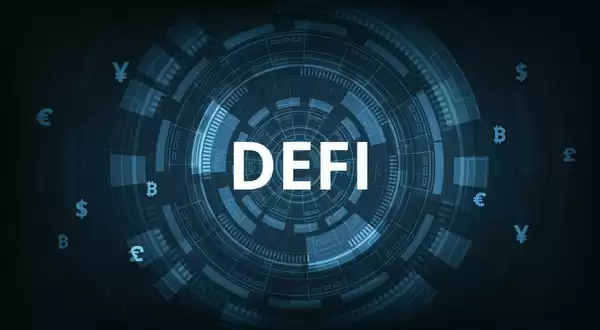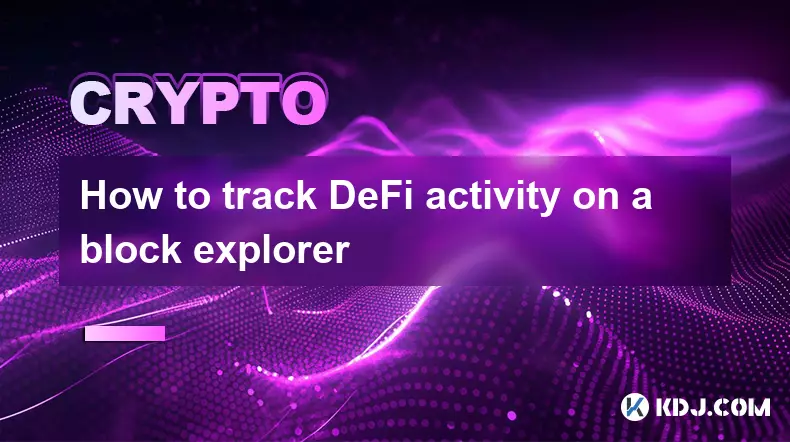-
 bitcoin
bitcoin $87959.907984 USD
1.34% -
 ethereum
ethereum $2920.497338 USD
3.04% -
 tether
tether $0.999775 USD
0.00% -
 xrp
xrp $2.237324 USD
8.12% -
 bnb
bnb $860.243768 USD
0.90% -
 solana
solana $138.089498 USD
5.43% -
 usd-coin
usd-coin $0.999807 USD
0.01% -
 tron
tron $0.272801 USD
-1.53% -
 dogecoin
dogecoin $0.150904 USD
2.96% -
 cardano
cardano $0.421635 USD
1.97% -
 hyperliquid
hyperliquid $32.152445 USD
2.23% -
 bitcoin-cash
bitcoin-cash $533.301069 USD
-1.94% -
 chainlink
chainlink $12.953417 USD
2.68% -
 unus-sed-leo
unus-sed-leo $9.535951 USD
0.73% -
 zcash
zcash $521.483386 USD
-2.87%
What does DeFi protocol mean?
DeFi protocols offer greater accessibility, lower transaction costs, and the potential for higher returns, fostering an environment of innovation and financial inclusivity.
Oct 02, 2024 at 10:54 pm

- Meaning of DeFi Protocol
DeFi protocol refers to a set of decentralized financial protocols built on blockchain technology. Unlike traditional financial systems, DeFi protocols operate autonomously without intermediaries, enabling users to engage in financial activities directly through smart contracts.
- Key Characteristics of DeFi Protocols
- Decentralized: DeFi protocols are built on distributed ledger technology, ensuring transparency, security, and immutability.
- Permissionless: Anyone can access and use DeFi protocols without restrictions.
- Interoperability: DeFi protocols are often interoperable, allowing users to transfer assets and interact with different protocols seamlessly.
- No Intermediaries: DeFi eliminates the need for intermediaries, such as banks or exchanges, reducing transaction costs and potential bias.
- Automation and Efficiency: Smart contracts automate financial processes, making transactions faster, cheaper, and more efficient.
- Types of DeFi Protocols
There are various types of DeFi protocols, including:
- Lending and Borrowing: Protocols like Aave and Compound allow users to lend and borrow cryptocurrencies at interest rates set by the market.
- Decentralized Exchanges (DEXs): Protocols like Uniswap and SushiSwap facilitate decentralized trading of cryptocurrencies.
- Stablecoins: Protocols like MakerDAO create and manage stablecoins, cryptocurrencies pegged to a fiat currency like the US dollar.
- Derivatives: Protocols like Synthetix allow users to trade derivatives without a centralized counterparty.
- Insurance: Protocols like Nexus Mutual provide decentralized insurance coverage to protect users against potential losses.
- Benefits of DeFi Protocols
- Greater Accessibility and Inclusivity: DeFi allows anyone with an internet connection to access financial services, regardless of location or financial background.
- Increased Security and Transparency: Blockchain technology provides a secure and transparent record of all transactions, reducing fraud and misuse.
- Lower Costs and Higher Returns: The elimination of intermediaries in DeFi leads to lower transaction fees and potentially higher returns on investments.
- Innovation and Flexibility: DeFi fosters an environment where developers can create new financial products and protocols to meet evolving user needs.
- Challenges to DeFi Protocols
- Scalability: DeFi protocols can experience scalability issues as the number of users and transactions increases.
- Security: While blockchain is generally secure, DeFi protocols can be vulnerable to hacking and cyberattacks.
- Regulation: The regulatory landscape for DeFi is still evolving, and compliance with existing regulations can be challenging.
- User Experience: Some DeFi protocols may have a steep learning curve, making them inaccessible to new users.
Disclaimer:info@kdj.com
The information provided is not trading advice. kdj.com does not assume any responsibility for any investments made based on the information provided in this article. Cryptocurrencies are highly volatile and it is highly recommended that you invest with caution after thorough research!
If you believe that the content used on this website infringes your copyright, please contact us immediately (info@kdj.com) and we will delete it promptly.
- Rotorua's Parking Predicament: Will Coins Cash Out in the City of Sulphur?
- 2026-02-10 06:55:01
- PEPE Price Navigates Treacherous Waters: Key Support Under Siege Amid Relentless Bear Pressure
- 2026-02-10 07:35:01
- Binance, Ripple (XRP), and Altcoins: A Market Shake-Up on the Horizon
- 2026-02-10 07:30:02
- The Shifting Stages of Honor, the Kennedy Center, and Modern Philanthropy
- 2026-02-10 07:20:02
- Vitalik Buterin Champions DeFi Privacy: A New Era for Crypto?
- 2026-02-10 07:30:02
- Ibadan Kinsmen Applaud Mogaji's Impactful Health Intervention
- 2026-02-10 07:25:01
Related knowledge

What is a delta-neutral strategy in DeFi?
Jan 04,2026 at 03:20am
Understanding Delta-Neutral Positioning1. A delta-neutral strategy in DeFi refers to a portfolio configuration where the overall sensitivity to price ...

How to track DeFi activity on a block explorer
Sep 04,2025 at 05:36pm
Bitcoin's Role in Decentralized Finance1. Bitcoin remains the cornerstone of the cryptocurrency ecosystem, serving as both a store of value and a benc...

What is the difference between DeFi and CeFi? An article analyzing the advantages and disadvantages of both
Jun 13,2025 at 03:57am
Understanding the Foundations of DeFi and CeFiTo fully grasp the difference between DeFi (Decentralized Finance) and CeFi (Centralized Finance), it’s ...

What is DeFi? How to balance risks and returns?
May 31,2025 at 12:22pm
What is DeFi? How to Balance Risks and Returns? Decentralized Finance, commonly known as DeFi, represents a revolutionary shift in the financial ecosy...

How does DeFi lending work? What is the difference from traditional bank loans?
May 29,2025 at 05:36pm
Introduction to DeFi LendingDeFi lending, or decentralized finance lending, represents a revolutionary shift in the way borrowing and lending are cond...

Is DeFi safe? The opportunities and challenges of decentralized finance
May 27,2025 at 02:28pm
Decentralized Finance, commonly known as DeFi, has revolutionized the financial landscape by offering a range of financial services without the need f...

What is a delta-neutral strategy in DeFi?
Jan 04,2026 at 03:20am
Understanding Delta-Neutral Positioning1. A delta-neutral strategy in DeFi refers to a portfolio configuration where the overall sensitivity to price ...

How to track DeFi activity on a block explorer
Sep 04,2025 at 05:36pm
Bitcoin's Role in Decentralized Finance1. Bitcoin remains the cornerstone of the cryptocurrency ecosystem, serving as both a store of value and a benc...

What is the difference between DeFi and CeFi? An article analyzing the advantages and disadvantages of both
Jun 13,2025 at 03:57am
Understanding the Foundations of DeFi and CeFiTo fully grasp the difference between DeFi (Decentralized Finance) and CeFi (Centralized Finance), it’s ...

What is DeFi? How to balance risks and returns?
May 31,2025 at 12:22pm
What is DeFi? How to Balance Risks and Returns? Decentralized Finance, commonly known as DeFi, represents a revolutionary shift in the financial ecosy...

How does DeFi lending work? What is the difference from traditional bank loans?
May 29,2025 at 05:36pm
Introduction to DeFi LendingDeFi lending, or decentralized finance lending, represents a revolutionary shift in the way borrowing and lending are cond...

Is DeFi safe? The opportunities and challenges of decentralized finance
May 27,2025 at 02:28pm
Decentralized Finance, commonly known as DeFi, has revolutionized the financial landscape by offering a range of financial services without the need f...
See all articles










































































